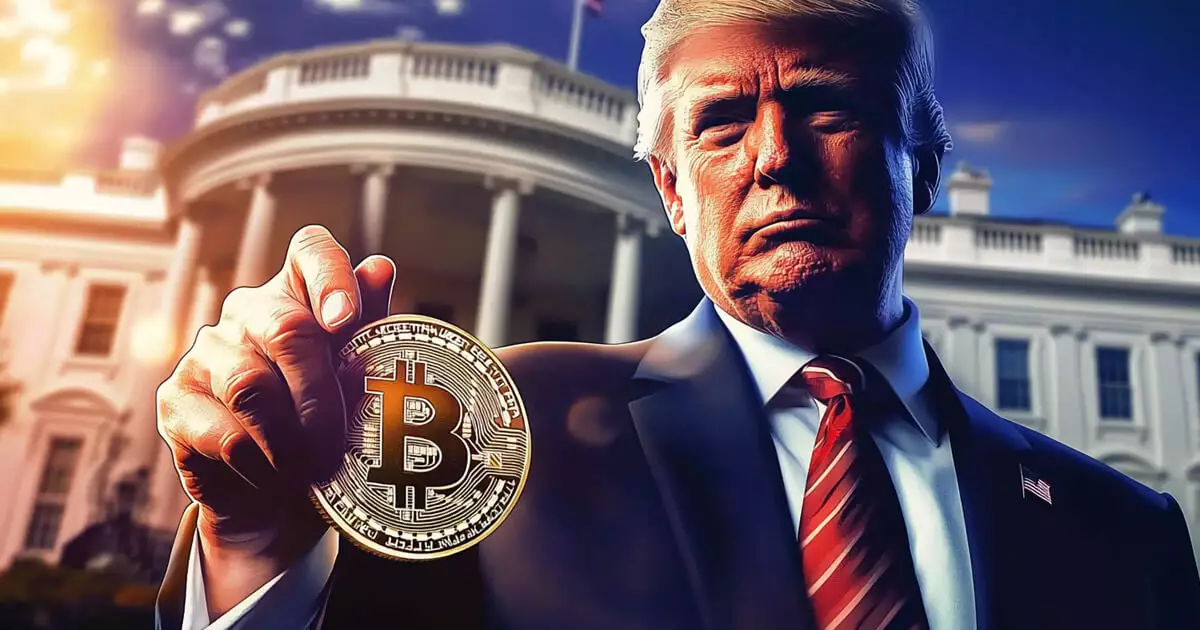In the ever-evolving landscape of U.S. financial regulation, the appointment of new leadership can herald significant shifts in policy and philosophy. President-elect Donald Trump is reportedly considering Paul Atkins, a seasoned advocate for deregulation and innovation, as the next chair of the U.S. Securities and Exchange Commission (SEC). This decision, if realized, represents not just a personnel change but a fundamental realignment in how the SEC operates, particularly concerning the burgeoning realms of cryptocurrency and financial technology.
Atkins served as an SEC commissioner during the George W. Bush administration, bringing a wealth of experience in both regulatory frameworks and market dynamics. Known for his pro-innovation stance, Atkins has vocally supported the integration of new technologies within the financial sector. His founding of Patomak Global Partners, a consulting firm rooted in financial industry service, exemplifies his commitment to fostering a marketplace that thrives on innovation rather than stifling it through stringent regulations. Advocating for a more market-driven approach aligns closely with Trump’s campaign themes, which included promises to streamline governance and reduce fiscal burdens on businesses.
The potential appointment of Atkins contrasts sharply with the regulatory ideology of Gary Gensler, who currently holds the SEC chair and has championed a more punitive model of regulation, often termed “regulation by enforcement”. Gensler’s tenure has been marked by increased scrutiny of major cryptocurrency entities, including Binance, Coinbase, and Ripple, which has left many in the crypto community feeling uncertain about compliance. This departure from Gensler’s stringent enforcement to a potentially more lenient approach under Atkins could provide the clarity and support that innovators in the financial technology sector have long sought.
Reflecting on the Broader Regulatory Environment
Trump’s embrace of cryptocurrency during his campaign, paired with Atkins’ proposed leadership, suggests a looming overhaul of existing policies. Beyond the individual appointment, this shift could indicate a broader trend towards welcoming cryptocurrencies into the financial mainstream. During his campaign, Trump proposed establishing a strategic Bitcoin reserve and appointing crypto-friendly regulators, pledging to dismantle the current administration’s restrictive measures against digital currencies. For market participants, this prospect of increased access to regulatory support could stimulate growth and investment, positioning the U.S. as a leader in the global cryptocurrency arena.
As Atkins joins the list of candidates being considered for the SEC chair, including notable figures like Mark Uyeda and Heath Tarbert, the implications for the future of financial regulation in the U.S. could be profound. In a regulatory environment that is often seen as burdensome and opaque, a shift in philosophy guided by Atkins could instigate more transparent and supportive frameworks for emerging technologies. This transition could flavor the policy debates surrounding crypto assets, setting the stage for the U.S. to redefine its position in the global financial ecosystem and fostering an environment where innovation and compliance go hand in hand. The coming weeks will be crucial as the incoming administration lays the groundwork for its regulatory strategy, with the potential for impactful changes in the SEC’s approach to both cryptocurrencies and fintech at large.

